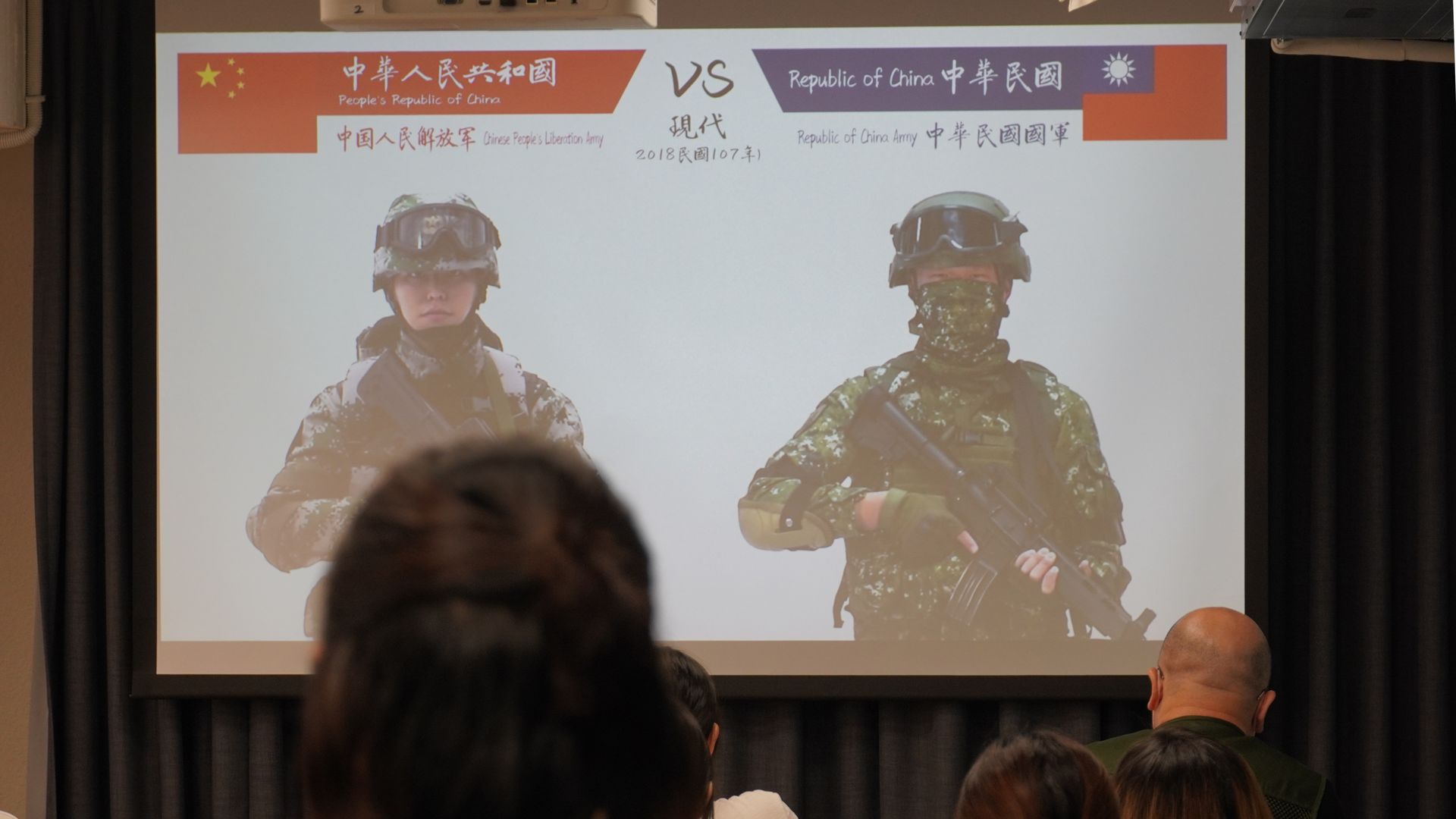Bethany Allen-Ebrahimian
TAIPEI, Taiwan — An infusion of cash from a Taiwanese semiconductor magnate is helping fund new cyber defense training for Taiwanese citizens.
Why it matters: The goal is to fight online disinformation and hybrid warfare that could accompany a potential Chinese military assault on the self-governed island democracy.
What's happening: Taiwanese tech tycoon Robert Tsao recently pledged approximately $20 million in funding for Kuma Academy, a company founded last year to help Taiwanese people prepare for a potential Chinese invasion.The academy plans to provide civilian military training for three million people over the next three years.
Part of the training includes basic courses in identifying and publicly debunking online disinformation, and the academy plans to launch advanced courses on open-source intelligence gathering (OSINT) taught by volunteer hacking groups.
Details: OSINT can include using publicly available satellite images to track troop movements, analyzing databases, and assessing social media posts from people claiming to have witnessed important events.Using OSINT isn't that popular in Taiwan despite the many hacking groups operating on the island, Puma Shen, co-founder of Kuma Academy, said in an interview after training sessions held this month in Taipei.
"Even with all these hackers, if they are voluntarily doing something during the war, it won’t be enough," Shen said, referring to a potential future war with China. "We want to expand."
Shen plans to train participants in how to tailor general OSINT practices for a Taiwanese context — such as compiling lists of words typically used by netizens in Taiwan but not in China, which could help determine the identity of social media users posting information while claiming to be Taiwanese.
The classes also teach participants to debunk fake news and identify Chinese military uniforms and weapons, knowledge that can be useful for distinguishing between true and false informati0n posted online in a wartime environment.
The big picture: The classes aim to foster a sense of hope among Taiwanese people by showing them how they can play a part in the national defense, and by pointing out the limitations China faces if it were to attempt an invasion, the co-founders said.In his presentation, Ho Cheng-hui, also a Kuma Academy co-founder, sought to push back against the common belief in Taiwan that if China were to invade, Taiwan would have no choice but to surrender immediately.
Ho explained the difficulty of amphibious assault, the struggles Chinese troops on Taiwan would face in their supply lines across the Taiwan Strait, and shared historical examples of smaller countries successfully repelling invaders from a much larger country.
The information battlefield has featured prominently in the Russian invasion of Ukraine, and a growing number of people in Taiwan are studying Ukrainian resistance tactics.Russian-affiliated media, online groups, and organizations have spread propaganda and targeted disinformation intended to weaken the wills and disrupt the decision-making processes of Ukraine and its allies.
Ukrainian citizens, as well as groups and individuals from around the world, have worked together to fight Russian online disinformation, including through using OSINT to track military maneuvers and gather evidence about alleged war crimes.
What they're saying: Rumors can “destroy our will to resist," Ho said during the class."War is, at its most basic nature, a contest of wills," Ho said. "The two sides use a variety of methods to try to force the other to obey its will. Armed conflict is only one form of modern warfare."

No comments:
Post a Comment